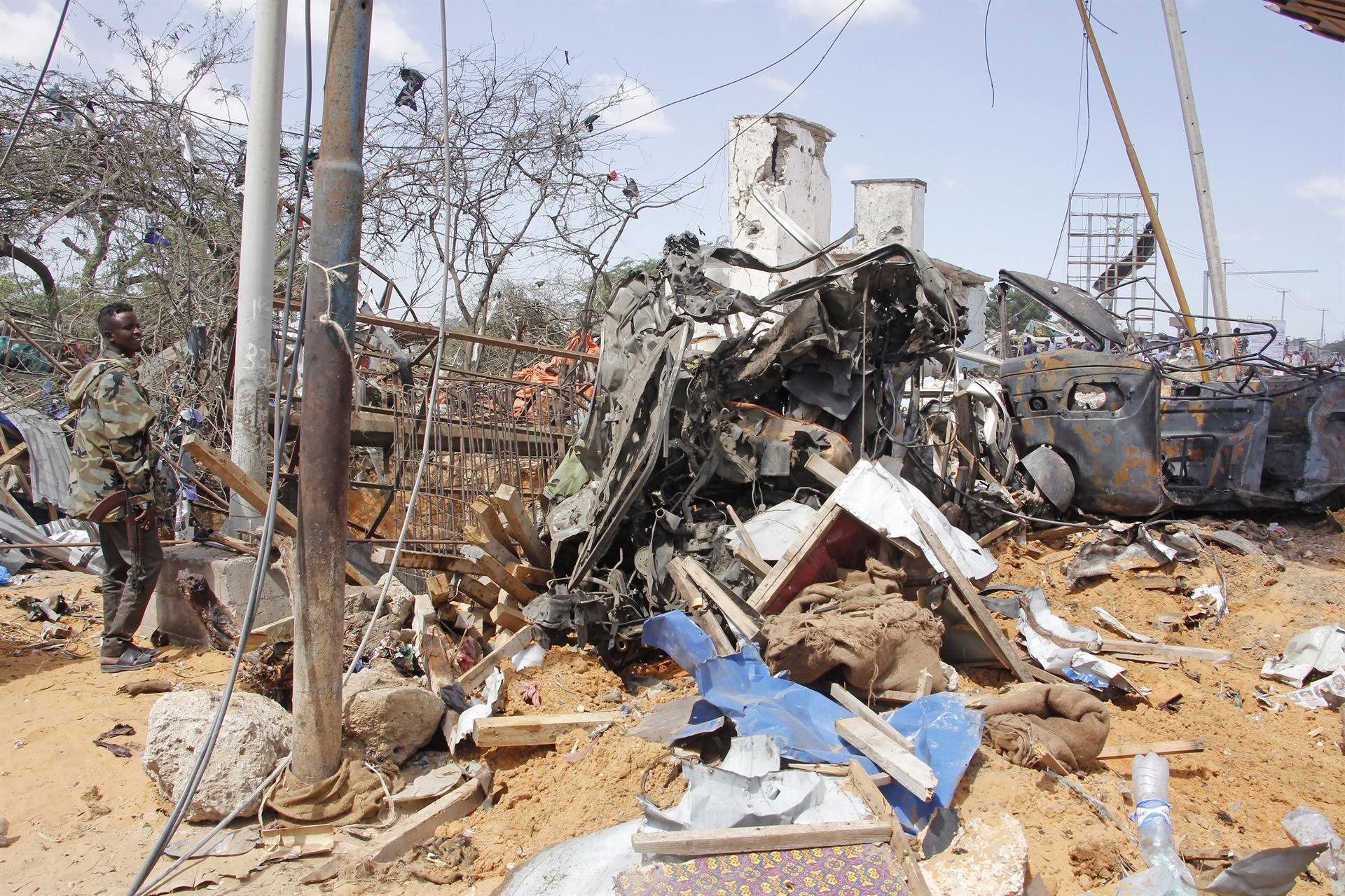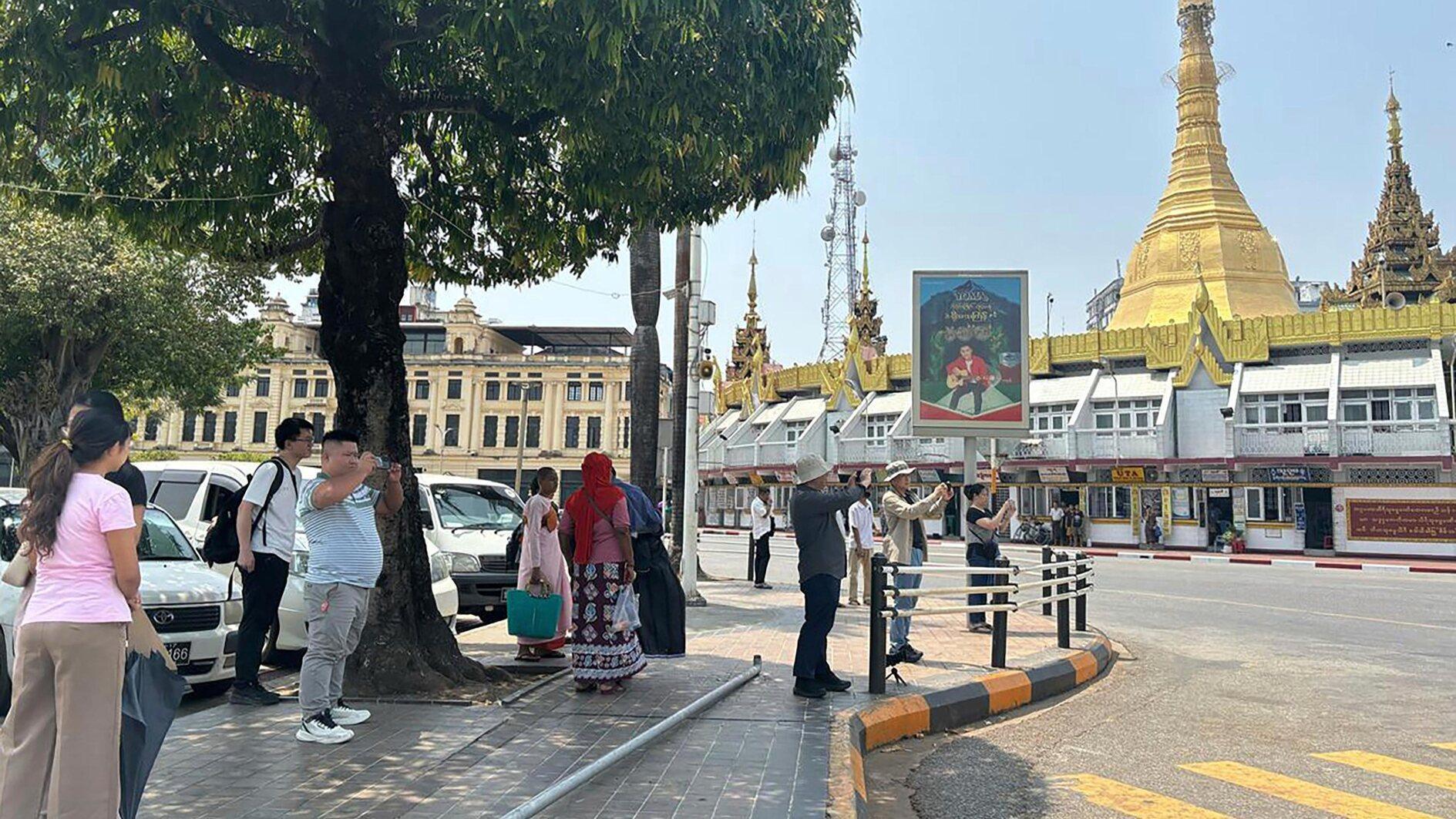Suicide attack kills at least 80, including 2 Turkish nationals in Mogadishu, Somalia
MOGADISHU

At least 80 people, including two Turkish nationals, were killed and many more wounded in a suicide truck bomb attack on a security checkpoint in the Somali capital Mogadishu on Dec. 28, said Turkey's envoy to the country.
It was one of the deadliest attacks in Mogadishu in recent memory, and witnesses said its force reminded them of the devastating 2017 bombing that killed hundreds of people.
Turkish President Recep Tayyip Erdoğan on Dec. 28 condemned the deadly terror attack in Somalia, and expressed the nation's sympathy for the East African country.
"I condemn the terror attack in Mogadishu, I wish Allah's mercy upon two Turkish citizens and Somalian brothers who lost their lives and speedy recovery for those who were injured," Erdoğan wrote on Twitter.
Offering his condolences to the Turkish nation and Somali people, Erdoğan said: "Turkey always stands by Somalia."
Speaking to Turkey's state-run Anadolu Agency, Ambassador Mehmet Yılmaz said: “36 wounded are being treated in our Recep Tayyip Erdoğan Hospital, and nine injured are in surgery. According to information we have, almost 80 people were killed in the attack.”
"We're worried that the number of dead in the explosion will exceed 100," he added.
Condemning the deadly attack, Turkish Foreign Minister Mevlüt Çavuşoğlu said: "I wish God's grace for two Turkish nationals and all those innocent Somali brothers killed in the attack. We always will continue to support Somalia. Our determined fight against terror will continue.”
Turkish Communications Director Fahrettin Altun also denounced the attack, writing on Twitter: “I wish God's grace for two of our citizens and almost 80 Somali brothers and sisters who were killed in heinous attack. Our country will always stand with Somalia in the fight against terror.”
The attack took place at the junction called Ex-Control Afgoye in a southwestern suburb of the capital during the morning rush hour of Dec. 28.
The toll could rise as scores of people were rushed to hospitals, government spokesman Ismail Mukhtar told The Associated Press.
Most of those killed were university and other students returning to class, Mayor Omar Mohamud Mohamed said at the scene.
Mogadishu resident Mahmoud Ali, 30, told Turkey's state-run Anadolu Agency that the attack was one of the deadliest he has seen in his lifetime.
Hussain Ibrahim, a police captain, said that an investigation is underway after the attack.
There was no immediate claim of responsibility for the blast. The al-Qaida-linked al-Shabab often carries out such attacks. The extremist group was pushed out of Mogadishu several years ago but continues to target high-profile areas such as checkpoints and hotels in the seaside city.
The extremist group is now able to make its own explosives, its “weapon of choice,” United Nations experts monitoring sanctions on Somalia said earlier this year. The group had previously relied on military-grade explosives captured during assaults on an African Union peacekeeping force.
Al-Shabab was blamed for the truck bombing in Mogadishu in October 2017 that killed more than 500 people. The group never claimed responsibility for the blast that led to widespread public outrage. Some analysts said al-Shabab didn’t dare claim credit as its strategy of trying to sway public opinion by exposing government weakness had badly backfired.
“This explosion is similar like the one ... in 2017. This one occurred just a few steps away from where I am and it knocked me on the ground from its force. I have never seen such a explosion in my entire life,” witness Abdurrahman Yusuf told the Associated Press.
The latest attack again raises concern about the readiness of Somali forces to take over responsibility for the Horn of Africa country’s security in the coming months from the AU force.
Al-Shabab, the target of a growing number of U.S. airstrikes since President Donald Trump took office, controls parts of Somalia’s southern and central regions. It funds itself with a “taxation” system that experts describe as extortion of businesses and travelers that brings in millions of dollars a year.
















